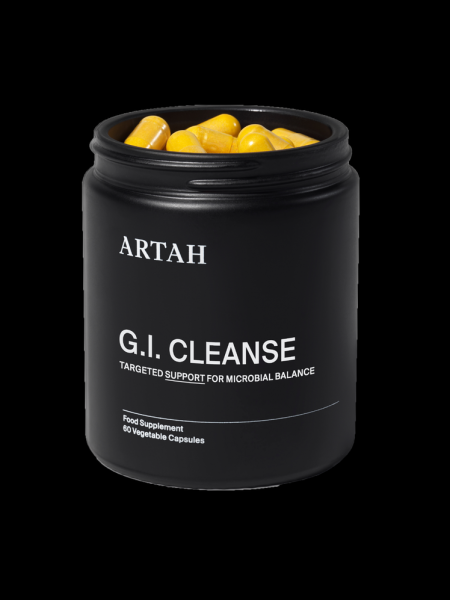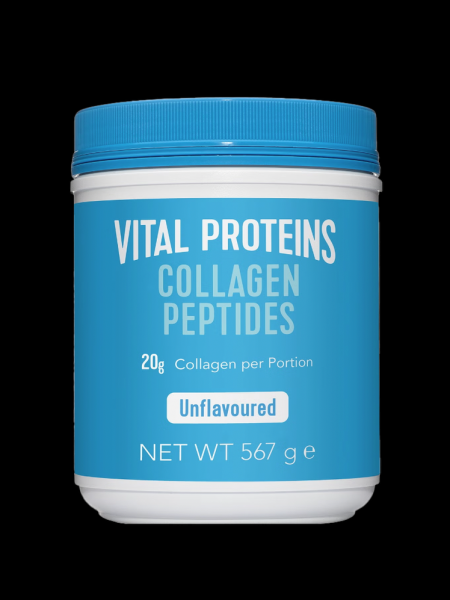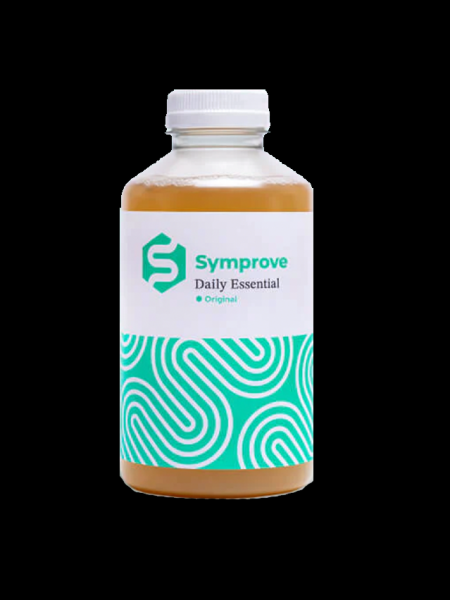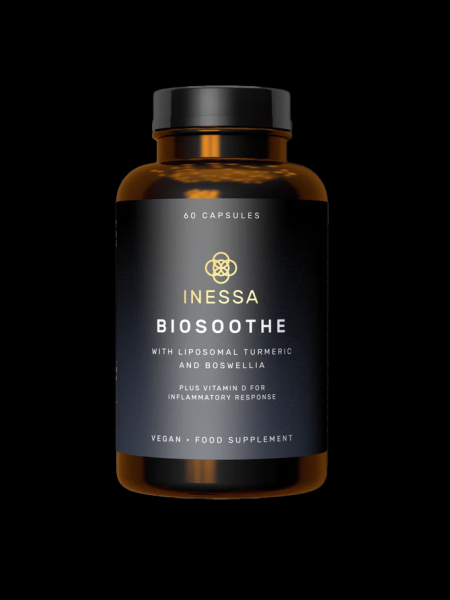
Gut health: you’re either someone who’s considering what probiotic to buy next, or, you’ve got zero clue about the state of play in one of your body’s most important microbiomes. Our gut health impacts every other system in our body, from skin to our mental wellbeing, so keeping it healthy and happy is key to feeling good.
You might have heard about leaky gut syndrome which, more formally, describes increased intestinal permeability, and is linked to countless illnesses and imbalance within the body. Here, we take a deep dive into what it is, how it impacts the body and what you can do to prevent and treat it.
What is a leaky gut?
“The gut is semi-permeable, meaning that it acts as a protective barrier against potential toxins, pathogens and the content of the gut, while allowing certain nutrients, compounds and water to pass through,” explains Rhian Stephenson, naturopath, nutritionist and founder of Artah. Made up of a thin layer of cells, Dr Emily Leeming, whose Substack Second Brain explores all the latest gut science, compares it to a castle wall, complete with gates, that protects against invaders while allowing citizens and friendly traders to pass through.
Leaky gut occurs when the gut is damaged; it becomes more permeable and allows larger molecules, bacteria and other compounds through – which is when those castle gates are open far too wide and anyone can get in. “Leaky gut is the cluster of symptoms that results from this increased intestinal permeability,” explains Stephenson. “While leaky gut syndrome has not been accepted by mainstream medicine, increased intestinal permeability has been identified as a mechanism that contributes to many illnesses and imbalance.”
When leaky gut occurs over a long period of time it can cause inflammation which “is linked to many diseases and conditions, including heart disease, depression and type 2 diabetes,” explains Dr Leeming.
Signs of leaky gut
Leaky gut is mostly regarded as a symptom of other issues – such as inflammatory bowel conditions, coeliac disease, dysbiosis, irritable bowel syndrome and even chronic stress – rather than being an illness or condition in itself.
However, increased gut permeability does cause inflammation, alongside – often – excessive immune activation, which when experienced over time can prompt many of the symptoms associated with leaky gut.
These include “fatigue, brain fog, anxiety, headaches, skin problems, gastrointestinal symptoms like bloating and diarrhoea, lots of food and chemical sensitivities and poor immunity,” lists Stephenson. “It’s also associated with autoimmune conditions [these include everything from coeliac disease to Hashimoto’s disease to multiple sclerosis] and chronic fatigue syndrome.”
What contributes to leaky gut?
Our modern, Western lives can create a perfect storm for an issue like leaky gut – but knowledge is power, so ensure you’re aware of what can contribute to it.
Western and/or unhealthy diets
“A leaky gut can be a sign of an imbalanced gut microbiome – this is when you have low bacterial diversity and an overgrowth of the ‘bad’ bacteria,” explains Dr Leeming. “This can break down the layer of mucus that protects your gut barrier lining, causing increased permeability.” The Western diet, which is typically low in fibre and high in sugar and ultra-processed foods (UPFs) are key culprits behind unhealthy gut microbiomes.
“Diets lacking in fibre and high in gut-damaging emulsifiers and UPFs are a big problem,” says Stephenson. “Fibre acts a fuel for the microbes in our gut. When we aren’t getting enough of it, they turn to the gut mucosal layer for fuel, and in the absence of fuel, essentially erode the lining. Studies have shown that the less fibre we eat, the thinner our gut mucosal layer and higher our levels of inflammation.”
Gluten
Gluten may also play a potential role in leaky gut, says Stephenson, and this is why: “One of the mediators of intestinal permeability is a gut protein called zonulin,” she explains. “When zonulin is triggered, it causes a transient increase in gut permeability, which returns to normal once zonulin is gone. However, if whatever triggered it remains, the gut barrier can become compromised.” Two of zonulin’s most powerful triggers are pathogenic bacteria (i.e. from food poisoning) and gluten.
This is why gluten is now often deemed inflammatory by health experts. You don’t have to have coeliac disease or a diagnosed gluten sensitivity to be impacted by it, either. “We need to remember that the level of gluten we’re exposed to in the modern diet is far higher than it was 100 years ago,” adds Stephenson. “Modern varieties of wheat will typically have higher gluten levels, not to mention it is added to commercially processed foods as a binding agent, to increase shelf life and/or to add texture and flavour.”
Stress
Stress can have a knock-on effect on intestinal permeability due to its influence on motility, inflammation and microbial diversity, says Stephenson. “Chronic stress can alter the composition of our microbiome to favour more inflammatory species, too.”
Certain substances
Excessive alcohol consumption, as well as chronic overuse of non-steroidal anti-inflammatory drugs (NSAIDs) like aspirin and ibuprofen, as well as regular or excess use of antibiotics, can all also impact the health of our gut lining.
How to cure leaky gut
Already, you may have some idea on how to heal leaky gut holistically. Overall, it’s about eating a healthy, balanced diet full of whole foods, avoiding excessive alcohol intake and NSAIDs, and eating lots of fibre. But if you suspect leaky gut might be an issue for you, below some expert advice on what to look for.
(As always, if you’re experiencing gut issues – whether that’s bloating or pain – for extended periods of time, always make sure you book in to see a doctor.)
- Remove potential culprits. “Try to remove things that may compromise your gut barrier for a period of time,” recommends Stephenson. “Think ultra-processed foods, alcohol, unnecessary medications and gluten.”
- Eat lots of fibre… because when “gut bacteria feed on fibre, they produce special molecules called short chain fatty acids, which take care of your gut barrier lining, providing it energy and helping it repair,” says Dr Leeming.
- Support the microbiome. As well as increasing fibre intake, add in dark or rich-coloured fruits and vegetables, natural fermented foods and functional herbs like ginger, turmeric, rosemary and oregano, which are high in polyphenols. “Try to add in some mucilaginous support, like milled flaxseed, chia and/or psyllium husk,” adds Stephenson. Eating an anti-inflammatory diet like this will also improve many other facets of your health and wellbeing.
- Try bone broth. Commonly used in Traditional Chinese Medicine and Ayurveda, organic bone broth is full of collagen and minerals to help heal and soothe the gut. Stephenson also recommends consuming liver, which is rich in vitamins A and B12, both of which are important for gut barrier health. You can eat it alone or add into stews if you don’t like the taste.
- Consider food timing. “It’s important to give the gut time to rest and regenerate, so aim to increase the time between meals, including the last and first meals of the day,” advises Stephenson. “Aim for a minimum of 12 hours between dinner and breakfast – try 14 hours if you can.” Reduce daytime snacking and focus on eating more nutritionally complete meals to ensure you’re not hungry. This allows the gut to carry out its natural cleaning waves, which are triggered in a fasted state.
- Manage stress. It goes without saying that reducing stress is always the aim of the game – and the key to cultivating resilience and health. “Try to find something calming that you can do each day, even if it’s only for a few minutes,” says Stephenson. “I love breathwork but it can be anything from meditation to mindfulness to yin yoga.” You can even go for a walk in the park and stay off your phone, if that’s what works for you.
Best supplements for leaky gut
While it all starts with a good diet, these supplements can help heal a leaky gut.

Artah G.I. Cleanse
£38
Artah

Vital Proteins Collagen Peptides
£49.99
Vital Proteins

Symprove Daily Essential
£79.99
Symprove

Inessa BioSoothe
£38.99
Inessa